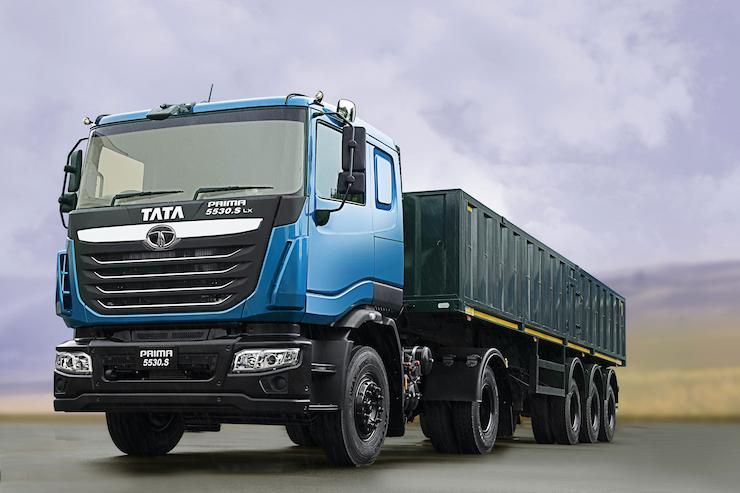Tata Motors Buys Italian Truck Maker Iveco for $4.4 Billion - Bigger Than Jaguar-Land Rover Deal


Tata Motors has confirmed a landmark deal to acquire Italian commercial vehicle major Iveco Group for €3.8 billion, marking the Indian automaker’s most ambitious international foray since its 2008 acquisition of Jaguar Land Rover. The all-cash transaction will give Tata a strong foothold in the European truck and bus market while transforming it into one of the world’s most geographically diverse commercial vehicle manufacturers.

The proposed deal, structured as a voluntary tender offer at €14.1 per share, values Iveco at a 41 percent premium over its recent trading average. Crucially, it excludes Iveco’s defence division, which will be sold separately to Leonardo, Italy’s aerospace giant, for €1.7 billion. This carve-out satisfies Italy’s strategic investment safeguards and keeps sensitive military technologies under domestic control.
Tata Motors has long dominated India’s commercial vehicle sector with a 39.1 percent overall market share and over 53 percent in the heavy commercial segment. However, nearly 90 percent of its commercial vehicle revenue is tied to the Indian market, making it heavily exposed to domestic economic cycles. The Iveco acquisition provides a gateway to reduce this dependence.
Iveco, in contrast, derives almost three-quarters of its €15.3 billion revenue from Europe, with additional operations in Latin and North America. The combined group’s commercial vehicle business will generate around €22 billion in annual revenue, with geographical exposure split roughly as Europe 50 percent, India 35 percent, and the Americas 15 percent. With over 540,000 units sold annually, the entity will compete directly with the likes of Volvo, Daimler, and Scania.

Beyond market reach, the deal gives Tata immediate access to a wide range of cleaner technologies. Iveco’s portfolio includes electric buses, hydrogen fuel cell vehicles, and engines compliant with strict European emissions standards. This is particularly relevant as Tata eyes future regulatory changes and prepares for the global shift toward zero-emission transport.
While Tata is a major force in India’s heavy-duty truck market, it lacks presence in light commercial vehicles and intercity buses - segments where Iveco is well entrenched. Iveco is currently Europe’s second-largest bus manufacturer and has a growing share in the light van segment. Integrating these offerings into Tata’s lineup could unlock new product categories for the Indian automaker both domestically and overseas.

Tata Motors’ commercial vehicle revenues currently hover around ₹75,000 crore. Post-acquisition, this figure could cross ₹2 lakh crore, nearly tripling the business size. Yet the move is not without financial trade-offs. Tata’s EBIT margin in commercial vehicles stands at 9.1 percent, while Iveco’s adjusted margins are closer to 5.6 percent. This reflects the tighter pricing and regulatory environment of Europe compared to India’s more fragmented and high-growth market.
Cost rationalisation, shared R&D, and manufacturing optimisation will be critical to improving margins across the board. Tata’s recent restructuring efforts - including its plan to demerge passenger and commercial vehicle businesses by March 2026 - indicate the company is already laying the groundwork for streamlined operations.
Cross-border deals in strategic sectors often face regulatory scrutiny, particularly in Europe. Italy’s Golden Power law permits state intervention in takeovers of national interest. Tata pre-empted this by separating Iveco Defence from the rest of the business. This strategic separation enabled a smoother negotiation path, with no government veto expected.
The Agnelli family, via its holding company Exor, holds over 43 percent of Iveco’s voting rights and has already backed the deal. Meanwhile, financing will come from a consortium led by Morgan Stanley and Japan’s MUFG Bank, which gives Tata the firepower to execute the cash acquisition without equity dilution.

The market response has been cautious but not hostile. Tata Motors’ stock dropped over 3 percent after the announcement, reflecting investor concerns around debt levels, integration challenges, and the competitive landscape in Europe. However, the stock later rebounded as analysts began to acknowledge the long-term strategic merit of the acquisition.
On the other hand, Iveco shares jumped 7.4 percent, with investors welcoming the premium pricing and a clear exit opportunity, especially for shareholders who had seen limited upside in recent years.
The acquisition is expected to close by April 2026, subject to merger control approvals and foreign investment clearances in the EU and other regions. The timing aligns with Tata’s internal roadmap for restructuring and international expansion.